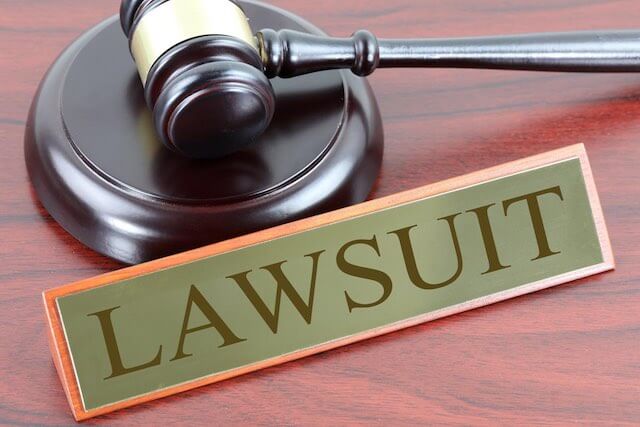Town’s Financial Vulnerability May Give Mall Upper Hand
By Rick Tannenbaum
The Town of Clarkstown has won two rounds in a court battle with the Palisades Center but the town may not win the war.
The Palisades Center is fighting to eliminate a covenant that requires a public referendum to allow the mall to build out 250,000 square feet of space on its fourth floor. In its first two legal attempts, the center lost in federal court – not because it was wrong, but simply because it waited too long to file its claims. The center is now appealing that decision.
 Town officials are confident the mall will lose the appeal but there are two reasons Clarkstown shouldn’t celebrate just yet. First, the mall can pursue its case in state court, where it probably should have started in the first place, and second, the center holds a bigger bargaining chip than the town: the right to challenge its taxes after 2020. In 2013, the center successfully challenged its property taxes, costing the town, county and school district $20 million. Clarkstown bonded its share of the settlement. The school district used its reserve funds.
Town officials are confident the mall will lose the appeal but there are two reasons Clarkstown shouldn’t celebrate just yet. First, the mall can pursue its case in state court, where it probably should have started in the first place, and second, the center holds a bigger bargaining chip than the town: the right to challenge its taxes after 2020. In 2013, the center successfully challenged its property taxes, costing the town, county and school district $20 million. Clarkstown bonded its share of the settlement. The school district used its reserve funds.
With the right to challenge its taxes again, and the loss of anchor stores and added competition from the Shops at Nanuet, there is a strong likelihood the center will prevail in its tax appeal – once again devastating the town and school district budgets.
So, is the right strategy for the town to bargain its way out of a potential tax appeal by removing the voter referendum requirement and allowing the center to use the unoccupied space? Perhaps.
EklecCo NewCo, the Delaware-based LLC that owns Palisades Center, appears to be willing to continue litigation, and it seems doubtful they will bargain away their right to file an appeal. In the short-term, a tax appeal victory could be more lucrative than leasing 250,000 square feet of space.
Further, the federal court case is not the only route to removal of the referendum requirement for the center. It may not have even been its strongest suit. Still out there are the center’s state law claims that say the town never had the authority to delegate its land-use decisions to the public, and that the provision for a referendum is, and always has been, illegal.
Let’s say the town issued you a permit for a swimming pool and you went to considerable expense to build it. Then, when you wanted to actually use it, you learned that you had to get your neighbors to vote on whether you can swim in your own pool. That’s not how land use and permits work. The decision on whether or not you can build and use your pool are uniquely town functions. Delegating it to the neighbors would never be permissible.
The center will likely claim that the referendum is and always was illegal and the passage of time does not alter that fact. The court could ultimately rule that the town had no authority to pass the decision on to voters, leaving the town nothing left to put on the negotiating table.
The Palisades Center claims, despite vacancies such as JC Penney, and a volatile retail environment, it needs to develop the unused space to remain competitive. A larger, healthier, modernized mall is less likely to win a tax challenge than one saddled with anchor vacancies and under-utilized space.
And though it may not be widely known, Clarkstown’s financial health is on shaky ground.
According to the Office of the State Comptroller, of more than 100 towns in the Mid-Hudson Region, Clarkstown’s financial health is rated dead last when it comes to susceptibility to financial stress in 2017. The criteria in the assessment is based on a complicated formula including revenue, expenses, and reserve funds. In 2015 and 2016, only a handful of mid-Hudson towns fared worse than Clarkstown.
The Town audit, which is late again, will reveal whether there has been improvement or degradation in the town’s financial health in 2018. Traditionally due out in May, last year’s audit wasn’t released until late October. With the election coming, it’s anyone’s guess when the audit will be released.
Against this framework, what should the town do?
Bolster the financial health of the mall by releasing it from the covenant and take a chance on the tax appeal? Or hold its ground and hope that the expansion into the 250,000 square feet is more important to the mall than the right to challenge its taxes?
So far, the center seems to have the upper hand. It has its federal court appeal. Its right to file its claims in state court. The voter referendum. And, if all else fails, the commencement of its tax challenge next year to bring the town to the bargaining table.
Rick Tannenbaum is a commercial broker with Houlihan Lawrence rtannenbaum@hlcommercialgroup.com
Also read:
Battle Lines Drawn in Vitane Pharmaceutical Fight to Remain in Clarkstown (March 22, 2019)
Clarkstown Should Reduce Dependence on Retail (February 20, 2019)
New Thinking Over How To Use Glut Of Empty Bank Buildings (January 31, 2019)
When Fair Leasing Terms Are a Workout (January 2, 2019)
Finding Balance in Scaffold Law Reform (December 11, 2018)
Economic Vitality Depends on Affordable Housing Options (November 26, 2018)
Opportunity Knocks on Haverstraw’s Door (November 4, 2018)
Real Estate Investors Rejoice Over New Depreciation Opportunities (October 23, 2018)











